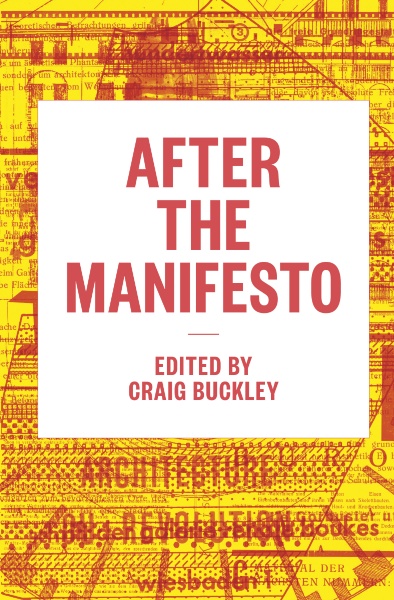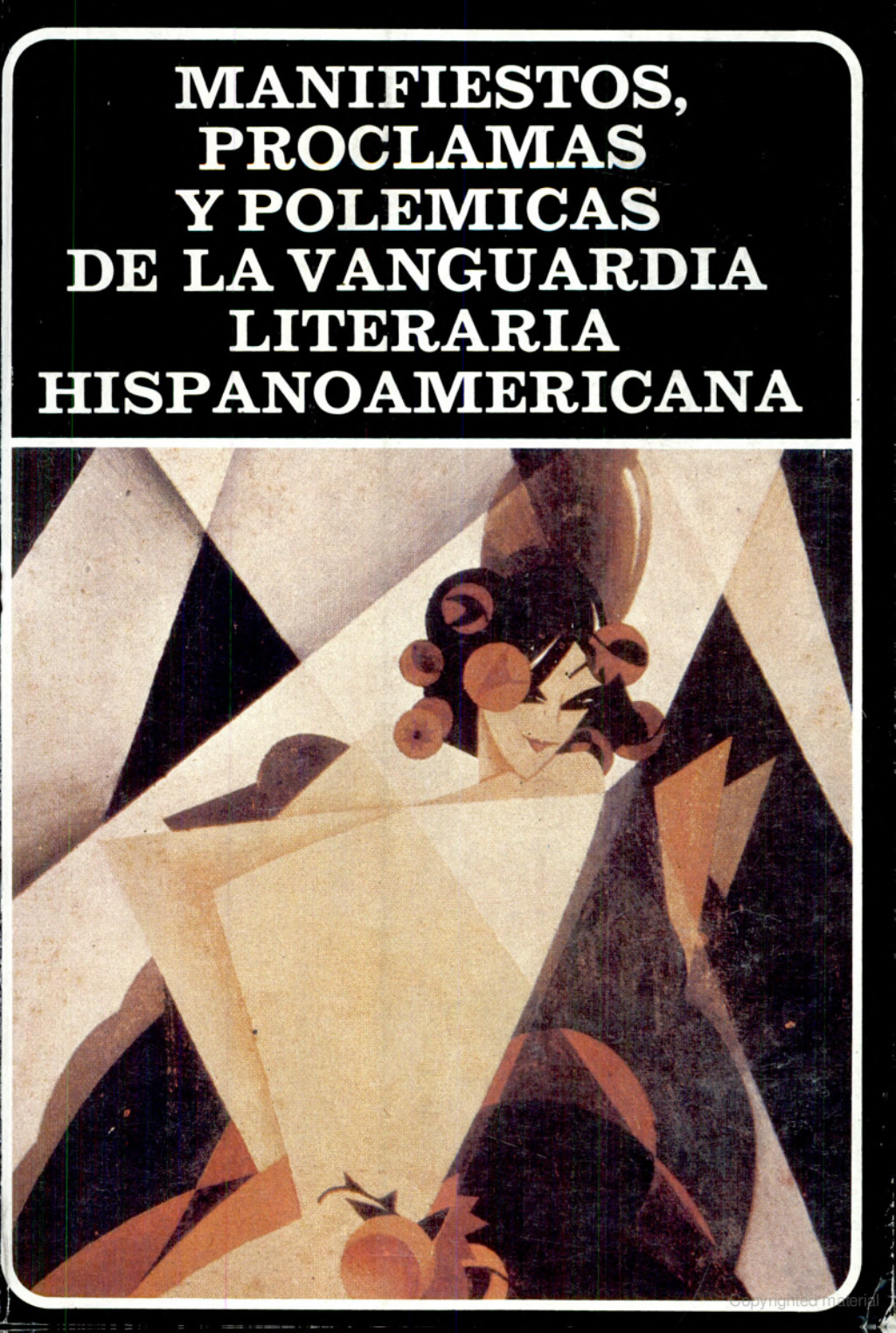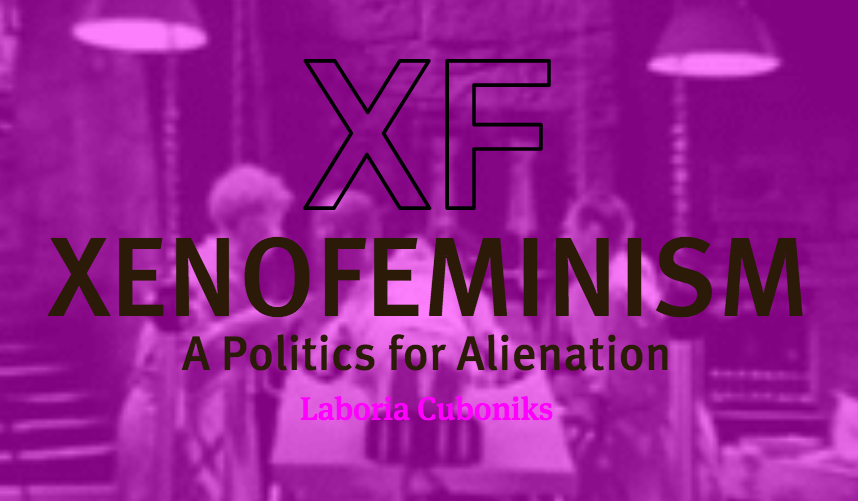Craig Buckley (ed.): After the Manifesto (2015)
Filed under book | Tags: · architecture, manifesto, theory

“There has been something of a mania for the manifesto in recent years. While only a little while ago one could still hear about the absence of manifestos in architecture, today we seem to be surrounded by them—on paper, on-line, within exhibitions, at events, in built form. The urgency of the genre has returned to prominence at a moment of economic crisis and political protests over inequality, yet also appears wedded ever more intimately to official institutions of culture. For some, the manifesto remains an archaism, the product of another century whose current revival artfully masks the fact that it has outlived its use. For others, the manifesto remains protean, a form that not only continues to remake itself but stands to be reclaimed in our age of rapidly changing media. For still others it is precisely the outmoded, untimely qualities of the manifesto that makes it so interesting today. After the Manifesto brings together architects and scholars to revisit the past, present, and future of the manifesto, a prism through which to question the present state of architectural culture.”
With essays by Rubén Alcolea, Craig Buckley, Beatriz Colomina, Héctor García-Diego, Carlos Labarta, José Ángel Medina, José Manuel Pozo, Juan Miguel Otxotorena, Felicity Scott, Jorge Tárrago, Bernard Tschumi, Anthony Vidler, Enrique Walker, and Mark Wigley.
Publisher Columbia Books on Architecture and the City, 2015
ISBN 1883584876, 9781883584870
184 pages
HTML, HTML (contains 3 of 11 chapters, by Buckley, Vidler and Tschumi)
Video from the symposium, (2), (3)
Manifiestos, proclamas y polémicas de la vanguardia literaria hispanoamericana (1988) [Spanish]
Filed under book | Tags: · avant-garde, history of literature, latin america, literature, manifesto

“El presente volumen constituye una suma de los textos más importantes mediante los cuales se debatió en toda América Latina el famoso movimiento de las vanguardias artísticas, acción renovadora de sintonía internacional cuyos efectos se hicieron sentir en todos los niveles de la vida social, política y cultural del mundo y de nuestro continente. A la vez, en sus protagonistas hispanoamericanos, acentuó el sentimiento de su condición común. Por ello es necesario dejar de considerar tal movimiento como un mero eco o reflejo de los vanguardismos europeos, para revelar, por el contrario, su consanguinidad continental y universal. El formidable trabajo realizado por Nelson Osorio para la edición de esta obra nos permite contar con una antología única en su tipo, ya que por primera vez se recogen textos programáticos, trabajos modernistas que se articulan al movimiento y documentos no literarios dispersos en numerosas publicaciones de difícil acceso para el lector, verdadero capítulo de las ideas estéticas latinoamericanas en el que se incluyen autores como Amado Nervo, Rubén Darío, Leopoldo Lugones, Luis Llorens Torres, Vicente Huidobro, Jorge Luis Borges, César Vallejo, José Carlos Mariátegui y Magda Portal, entre otros.”
Selected, edited, with introduction, bibliography and notes by Nelson Osorio T.
Publisher Biblioteca Ayacucho, Caracas, Venezuela, 1988
ISBN 9802760633, 9789802760633
xl+417 pages
via Natalie Johnson
PDF (142 MB)
Comment (1)Laboria Cuboniks: Xenofeminism: A Politics for Alienation (2015) [EN, DE, ES, RO, IT, RU, SK, SL, SW, FR, PT, FA, PL, DK]
Filed under manifesto | Tags: · alienation, capitalism, feminism, gender, manifesto, politics, technology

“Ours is a world in vertigo. It is a world that swarms with technological mediation, interlacing our daily lives with abstraction, virtuality, and complexity. XF constructs a feminism adapted to these realities: a feminism of unprecedented cunning, scale, and vision; a future in which the realization of gender justice and feminist emancipation contribute to a universalist politics assembled from the needs of every human, cutting across race, ability, economic standing, and geographical position. No more futureless repetition on the treadmill of capital, no more submission to the drudgery of labour, productive and reproductive alike, no more reification of the given masked as critique. Our future requires depetrification. XF is not a bid for revolution, but a wager on the long game of history, demanding imagination, dexterity and persistence.” (opening paragraph)
First published June 2015
GNU Public License
Commentary: Isabel de Sena (2019).
Xenofeminism: A Politics for Alienation: HTML, TXT, PDF (English)
Xenofeminismus. Eine Politik für die Entfremdung: HTML, TXT, PDF (German)
Xenofeminismo. Una política por la alienación: HTML, TXT, PDF (Spanish)
More translations (Romanian, Italian, Russian, Slovak, Slovenian, Swedish, French, Portuguese, Persian, Polish, Danish; added on 2019-3-6)

